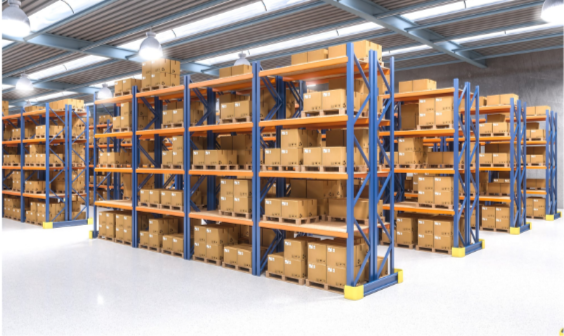Running a warehouse effectively is more than just having space to store products. The way items are organized, managed, and retrieved plays a key role in overall operations. Choosing the right warehouse storage solutions directly impacts efficiency, productivity, and safety within the facility. For businesses handling large inventories, this can mean the difference between smooth operations and unnecessary delays.
Understanding the Role of Warehouse Storage
At its core, warehouse storage is about creating a structured system for holding goods in an organized and accessible way. It is not just about stacking products but about ensuring that each item has a designated place where it can be safely stored and easily located. Modern storage systems are designed to maximize space, reduce handling time, and improve order accuracy. By investing in appropriate solutions, businesses can better meet customer demands while keeping operations cost-efficient.
Improving Efficiency Through Organized Storage
One of the main reasons why warehouse storage is essential is the boost in efficiency it brings. When goods are scattered without a clear system, workers spend more time searching for items, which slows down order fulfillment. On the other hand, a well-structured storage system ensures products are clearly labeled and stored in logical arrangements. This reduces confusion, shortens picking times, and makes overall workflow smoother. Efficiency in storage directly translates to faster deliveries and higher customer satisfaction.
Maximizing Space Utilization
Warehouses often deal with space limitations. Without the right storage solutions, valuable floor space can go to waste. Proper shelving, pallet racking, and vertical storage systems allow businesses to use their warehouse space to its fullest potential. By storing goods in a systematic way, companies can fit more products without overcrowding the facility. This not only saves money on additional storage but also ensures a safer working environment where pathways remain clear.
Enhancing Safety and Reducing Risks
Safety is another crucial factor tied to warehouse storage. Poorly stored items increase the risk of accidents, such as goods falling or blocking emergency exits. A professional storage system ensures that products are stacked securely and stored in compliance with safety standards. Organized aisles also reduce the chances of workers tripping over misplaced items or operating machinery in unsafe conditions. By prioritizing proper storage, businesses protect both their staff and their inventory.
Supporting Inventory Management
Good warehouse storage goes hand in hand with effective inventory management. When goods are placed in a structured system, it becomes easier to track stock levels and identify shortages or surpluses. Many businesses now integrate storage systems with inventory management software to monitor products in real time. This combination reduces human error and ensures that items are replenished before they run out. Having accurate stock information allows companies to make better purchasing decisions and avoid costly delays.
Speeding Up Order Fulfillment
For businesses in retail, e-commerce, and distribution, fast order fulfillment is a top priority. Customers expect quick deliveries, and delays can harm a company’s reputation. Warehouse storage solutions make the picking and packing process faster and more accurate. Workers can quickly find items because everything is stored in a logical manner. This minimizes mistakes in shipping orders and ensures that products reach customers on time, which strengthens trust and reliability.
Adapting to Business Growth
As businesses expand, the demand for storage also grows. A flexible warehouse storage system allows companies to scale up without major disruptions. Modular shelving, adjustable racks, and automated storage solutions can easily be adapted to meet changing needs. Instead of moving to a larger facility right away, businesses can optimize their current warehouse to handle more products. This flexibility helps companies remain competitive and reduces unnecessary operational costs.
Reducing Costs and Waste
Investing in the right warehouse storage also helps reduce costs in the long run. Organized storage reduces the time workers spend looking for items, which lowers labor expenses. It also minimizes the risk of product damage, as items are stored securely and handled less frequently. When goods are stored in a systematic way, businesses avoid losing track of stock, preventing waste from expired or misplaced products. All of these benefits contribute to higher profitability and smoother daily operations.
Meeting Industry Standards and Compliance
Many industries, such as food, pharmaceuticals, and manufacturing, must follow strict storage regulations. Proper warehouse storage ensures that products are kept in conditions that meet safety and compliance standards. For example, temperature-sensitive items may need specialized storage, while hazardous materials require secure shelving. Having the right solutions in place helps businesses avoid penalties and maintain credibility within their industry.
Conclusion
Warehouse operations depend heavily on how storage is managed. From improving efficiency and safety to maximizing space and supporting business growth, the right warehouse storage solutions play a vital role in daily functions. Businesses that invest in proper storage not only streamline their operations but also gain a competitive advantage in their industry. By organizing products in a structured, safe, and scalable way, companies can ensure smoother workflows, satisfied customers, and long-term success.

